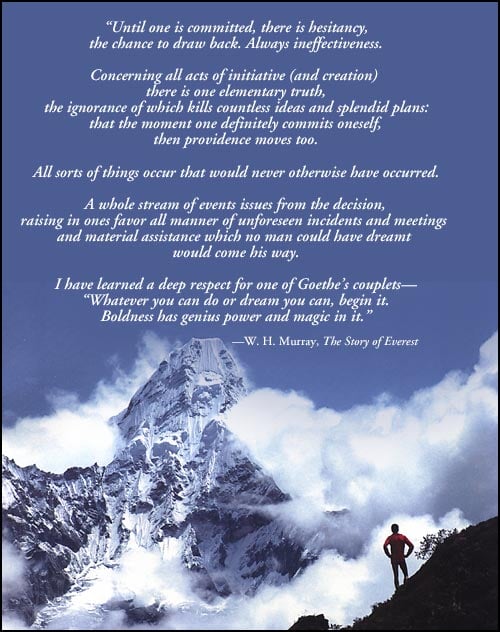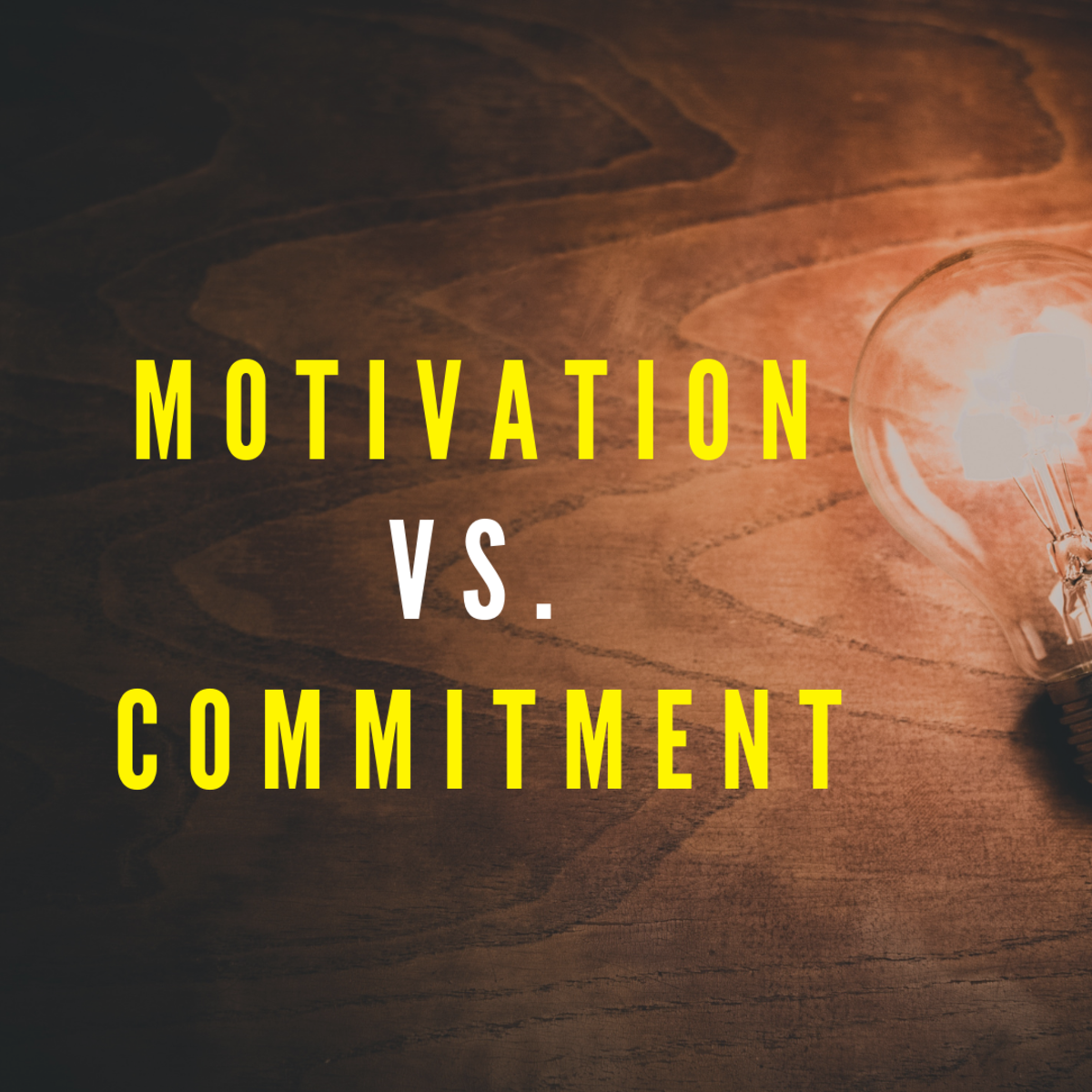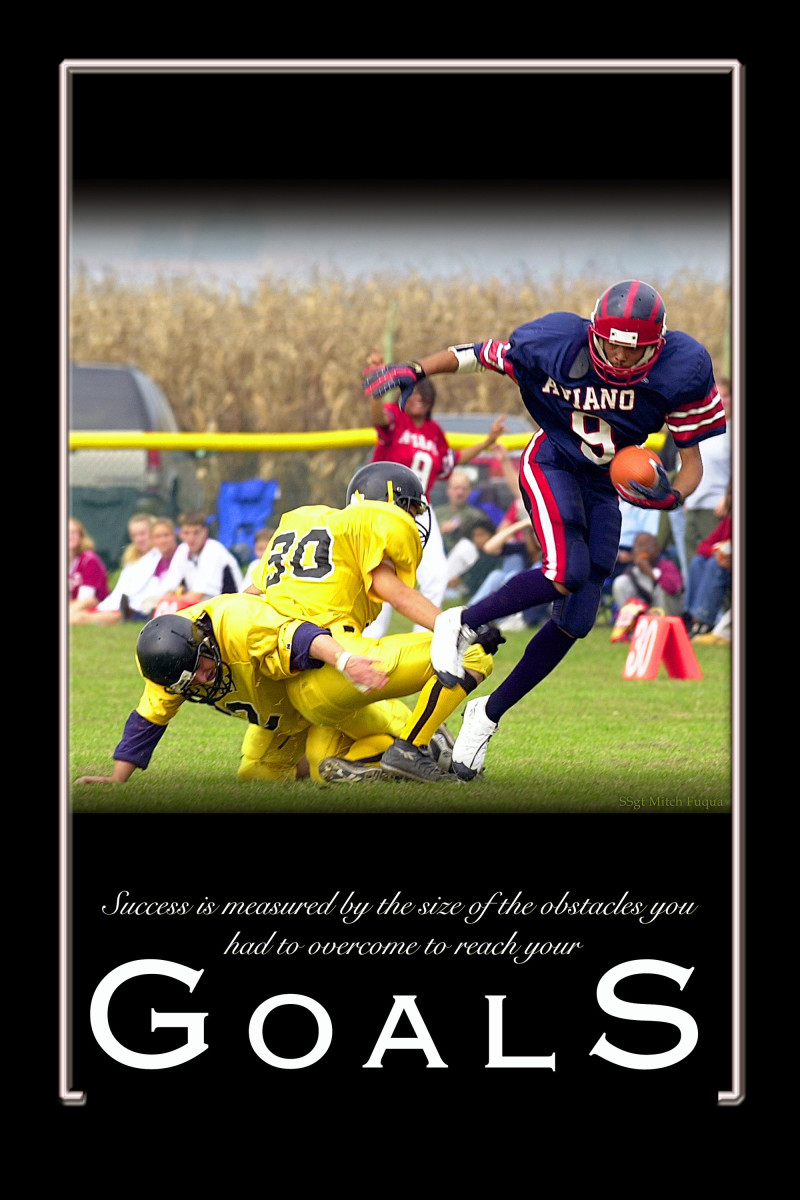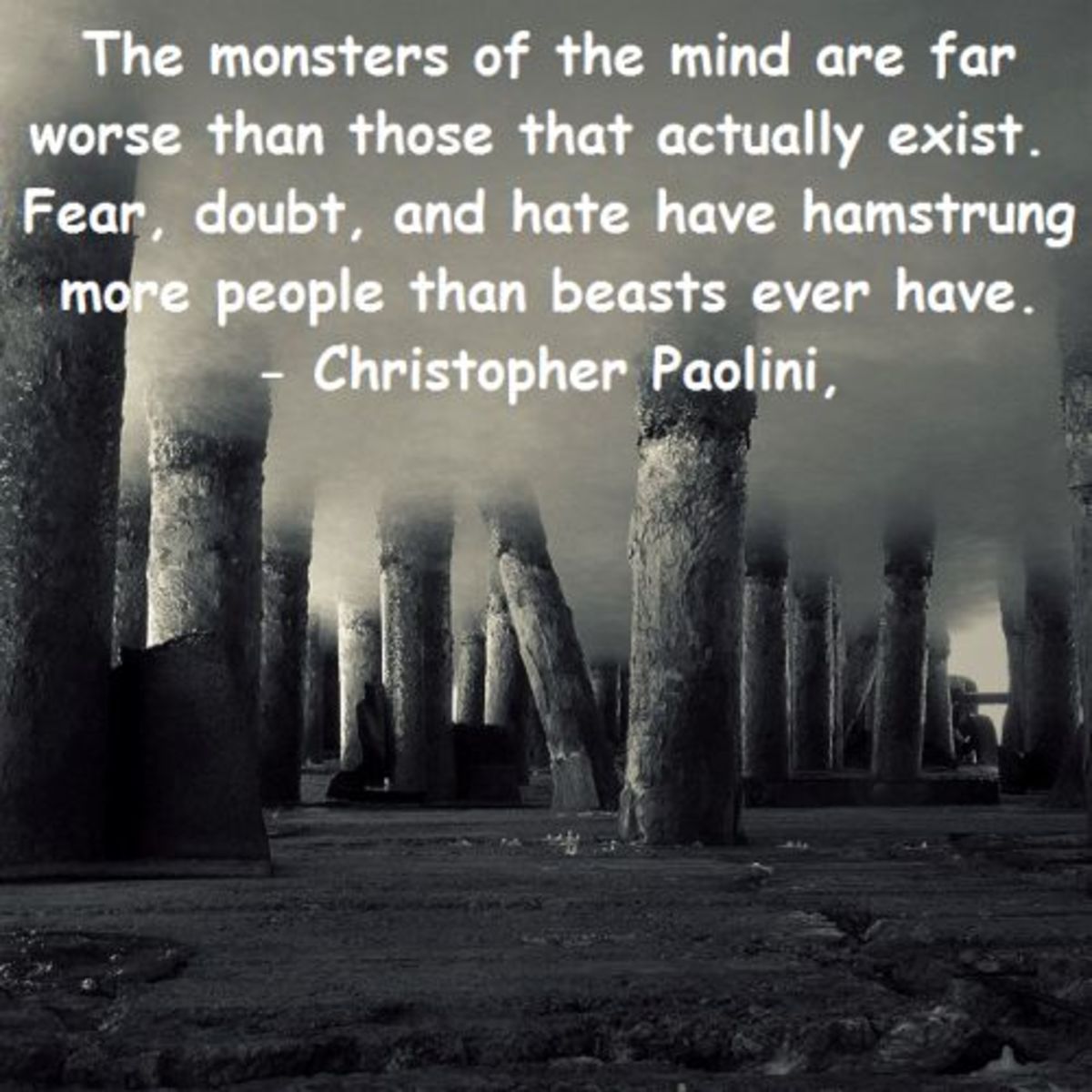On Commitment, Completion, and Success

Creating Results That Truly Matter In LIfe, Work . . . and Everything!
"I am seeking, I am striving, I am in it with all my heart." — Vincent Van Gogh
If you want to create what truly matters to you—in life, work, relationships, … or any area of your life—commitment is critical. It’s a catalyzing step in the creative process. It sparks energy. It keeps the flame of passion alive. It gets you moving—and once you start moving, creating, taking action, the Universe moves too.
When you commit to create a result that you care about, when you're "in it with you’re your heart" things begin to come your way. Coincidences occur in your favour. You learn from your experiments and exploration. You grow; your results grow. Slowly, then more quickly, your creation begins to take shape.
"Commitment," says James Womack, "unlocks the doors of imagination, allows vision, and gives us the "right stuff" to turn our dreams into reality.”
Commitment Is Not About Discipline; It's About Choice
Although commitment is key to creating, it scares many people—often into inaction! “How do you commit to such large projects when you have no idea if they’ll be successful? I'd be terrified that I'd take on too much, and fail.”
Others are put off by their notion that commitment is a form of "discipline." “Where do you get the discipline to write?" friends and clients ask me. "How do you force yourself to write when you don't feel like it? There's no way I'd force myself to do things I don't feel like doing.”
These folks do not understand what commitment really is. Commitment does not come from forcing yourself. Commitment is not enforced discipline.
Commitment is a choice you make to support results you care about, and want to bring into being. It arises out of the clarity of your vision of that desired result, and from the fact that you’d truly love to create it, and give it to the world. It's key to understand that commitment is driven by desire.
In his book Free Play, author and improvisational violinist Stephen Nachmanovitch says the word “desire” comes from de-sidere, ‘away from your star.’”
When you care deeply about a result and ground your vision in current reality, there is a gap between you and your results. Out of that gap, emerges an almost irresistible attraction that energizes and guides you toward that result.
Forced discipline does not get Olympic athletes up at 4:00 AM to train. Nor does willpower or self-manipulation through fear or guilt. Great athletes are motivated by clear visions of results they want to create. They are motivated by desire.
A Canadian Olympic swimmer once shared with me his secret for dealing with the doubts and sense of uncertainty that sometimes afflicted him. “Whenever I feel my commitment flagging,” he said, “and feel like I just can’t swim another length of the pool, I take a few moments to myself. I sit down, take a few deep breaths, close my eyes, and envision myself on the top step of the podium with a gold medal around my neck. I hear “Oh, Canada” being played. I feel myself fighting back tears while our flag is raised. And when I look down and see an American on one side of me, and an Australian on the other. They smile and reach up to shake my hand.”
“Wow!” I said, “That’s a powerful vision. You really get in touch with your desire."
“Absolutely!" he said," but there’s more. After I savor my vision for a few moments, and pump up my desire, I then compare it to where I am, to my best times to date, and my competitors' best times. When I can clearly see the difference between where I am and where I want to be, I feel the creative tension working for me. Then, it’s easy for me to choose to get back in the pool and swim my heart out. Commitment, for me, is making choices to do what I like to do, but sometimes don't feel like doing, so I can achieve my desired results— what I truly want to achieve.”
Without clear vision, solidly grounded in reality, all the discipline, willpower, and self-trickery in the world will not sustain athletes in their quest for results. It's the same for all creators. To be committed there must be something worth committing to, something that you care deeply about creating. There must be a desired result that you choose to commit to.
So commitment is the choice to do or create something that truly matters to you. It is also all the small day-to- day, moment-by-moment choices you make in support of your larger choices. The athlete commits to creating her best result at the Olympics, and then, each morning at 4 AM, she commits to getting out of bed, and into the pool for training—even though she feels like sleeping in. And she does it over and over and over again—until she achieves her desired result. That's commitment!
The Importance of Completion
You need commitment to get started on creating desire results. You also need it to follow through to fully completed results. Commitment is not one big, all-or-nothing choice. Commitment, as we've seen, is made up of many choices, made many times over. And although commitment may not always lead to success, it does usually lead to completion. You can learn from completion what you need to be more successful in your next attempt to produce a result.
Creators understand the importance of completing creations. Completing is about finishing fully, pulling together the pieces of a creation into a final form that you judge as complete. Completion allows you to let go. It generates a surge of energy you can use to start on your next creation.
If painters refused to judge their paintings as complete, they would never put them out into the world, nor move on to new paintings with renewed energy and vitality. Writers who insist on endlessly polishing a story before they submit it rarely progress beyond that unfinished story. There comes a time in any creative process when the creator says “Good enough. What I've created looks close enough to what I envisioned to say, "It’s done.” The painting is signed. The manuscript is sent to the publisher. You as the creator give your creation to the world, and become part of its audience. And you turn to your next creation.
The Energy of Creation
A woman in one of my workshops, for example, told us that as a teenager she’d learned to knit from her mother who was a master knitter. She developed a high degree of skill and finesse in the basics of knitting, but always deferred to her mother when it came time to sew the pieces of a project together.
Later, living by herself, she decided to knit a sweater. She worked for weeks and completed all the pieces. Then she realized she didn’t now how to sew the arms to the body. She put the sweater in a drawer, and left it there for twenty years. She did not knit another stitch on it—or on any other project. This failure to complete her sweater had nagged at her, eroding her self-esteem, ever since.
During the creating workshop, she chose to learn to sew her pieces and complete her sweater as one of her creating practices. The next week she came to class wearing the most beautiful Irish cable knit sweater I’ve seen. It was a wonderful week, she reported. As soon as she finished her sweater, she felt so energized, she started knitting sweaters for her kids. She loved her renewed commitment to the craft she’d abandoned. And was energized by it.
The Importance of Letting Go
Completing a creation is sometimes difficult because you do not want the process of creating it to end. It’s like being wrapped up in a compelling and entertaining novel. You’re so involved in it that you don’t want it to end.
Both a sense of satisfaction and a sense of sadness can accompany completion. Actors in a long-running play are glad to be finished, yet sad the play is over. Sailors returning from a long journey have the same mix of emotions. Because they experience sadness on completion, some would-be creators are reluctant to bring their creations to fruition. They prefer the process to the result.
But in the creative process, the result matters. The desire for the result is what gives rise to the process. If you are to complete and give your creation to the world, you must be willing to let go of the process and the good feelings that come with it. Otherwise, you'll prolong the process to the point that the result itself is forgotten.
Most creators rev up their as they close in on completion. But some get so excited that they speed up the project beyond what is good for it. They push it toward completion faster than it wants to proceed. As they do, their focus narrows too much, sometimes to the point where they miss important information. Setbacks occur, problems plague them. All because the creator gets over-anxious and careless.
You can’t hold on to a creation too long and you can’t push a creation to completion before its time. Part of the art of creating is to know when you’re done, and then let go gracefully.
Accepting and Acknowledging
Completion has two parts: acknowledging and accepting.
First, you need to acknowledge your results, to judge them “good enough” in the light of your vision. Moreover, you need to accept your results, to affirm your success, to shake off your failures, and let yourself enjoy the fruits of your labor.
When you are in the process of creating, you abstain from judgment in favour of objectively describing current reality. However, there is a time when judgment plays an important part in the creative process, a time to acknowledge that your creation is complete. At this point, the creation takes on a life of its own, separate from you.
Once you produce a result, and judge it as complete, your relationship with it shifts from creator to critic. You stand in judgment of it, like any other observer. In addition, whether it’s good or bad, you accept the creation to live with it, knowing it is separate from you.
Many people do not let themselves accept the results of their efforts. You can see this by how they respond to compliments. They will put off a compliment by saying “it was nothing,” or “I was just lucky.” Some give credit to someone else. Some downplay their results: “It's just a piece of junk I threw together.”
By not accepting the results they have created, these individuals fail to affirm their efforts. They do not complete the creative process. They do not experience the energy and momentum that comes with completion. This kind of affirmation is critical. Affirming success generates the energy and confidence needed to stretch for your next creation.
Creators sometimes produce results they do not like. So be it. If you don’t like a creation you've produced, create another one. Every creator has experienced making a piece that was exactly what was envisioned, yet did not please him or her. Rather than be upset by the piece, accomplished creators use the experience of making it—and the learning they gain—as the foundation for their next piece. John Fowles was not happy with his best-selling novel, The Magus. Twenty years later, armed with experience and mastery, he re-wrote it. Pablo Picasso was once asked which was his favorite painting. He quickly replied, “My next one.”
Sharing Your Light
One of the things that distinguishes a creator from a dabbler is the willingness to put creations out into the world and to live with them—regardless of what other people, or even the creator, thinks of the final product.
Many people fail to create what they truly want because they fear what others might say about it, or them. So, they hide their ideas and visions away. They invest their life energy in lesser things. Avoiding their deepest dreams and desires, they compromise. They do what they want second- or third most important, rather than what they truly want. Some settle for less than what they truly want because they don’t want to look arrogant or pushy.
I’ve had people ask me, “Who are you to be writing and teaching about this stuff?” My answer is that experience has taught me that people find what I write and teach useful. Plus, I love it.
For whatever reason though, many people go through life without ever attempting to realize their highest aspirations or deepest longings. This is a loss to all of us. I advise those who fear failing at what matters to step up and take their best swing, to feel the fear and do it anyway.
“But,” some ask, “what if I fail?”
People who ask this question rarely answer it consciously. Instead, they loosely fantasize about negative circumstances flowing from their “failure.” They imagine failure as absolute, unchanging, and devastating. It terrifies them.
“Really think about the question,” I suggest. “What would you do if you failed at something you truly wanted?”
Most think about this for a moment, and then say, “I guess if I truly wanted it, I’d try again. I’d figure out a way to do it.”
I remind them of authors such Robert Pirsig, whose novel Zen and the Art of Motorcycle Maintenance was rejected by over 100 publishers before it became a best seller. “What,” I ask, “if Pirsig had defined a dozen rejections as ‘failure?’ Or 40?” If a thing is worth doing, it is worth doing again and again — until you get it right.
Claiming Your Power
The philosopher Thomas Aquinas said that when you avoid creating because you don’t want to look arrogant, you withdraw from your power. Failing to take a stand for your greatness was, in his mind, worse than arrogance.
In Creation Spirituality, Matthew Fox says, “Aquinas feels that pusillanimity — the burying of your talents—is a greater sin than presumption, since thereby a person withdraws from good things. There is more danger in your remaining small and thus depriving others of your gifts than in offering those gifts and thus tempting pride, ambition or envy.”
So, as well as committing to your creations, and following through to completion, learn to acknowledge and accept your creations, and to live with them. Let them take on a life of their own. Doing so enables you to come in to your own full power. It empowers you to finish fully, and enjoy the rewards of success. It also enables you to give your precious gifts to your community and the world.
Anything less and you’re not being true to the self you sometimes “glimpse,” as Maslow put it, “in your most perfect moments." -
----------------
Bruce Elkin is Personal Life Coach is the author of Simplicity and Success: Creating The Life You Long For. He has 20 years of experience helping writers and other creatives organize their life and work around their passions.
-----------------------
Take a look a the following video by Peter Thomas. It includes a great story a about commitment, but beware, the anecdote about Harvard students who wrote down their goals has been dunked as a myth. The study never happened, although motivational speakers repeat it because it sounds so good.








